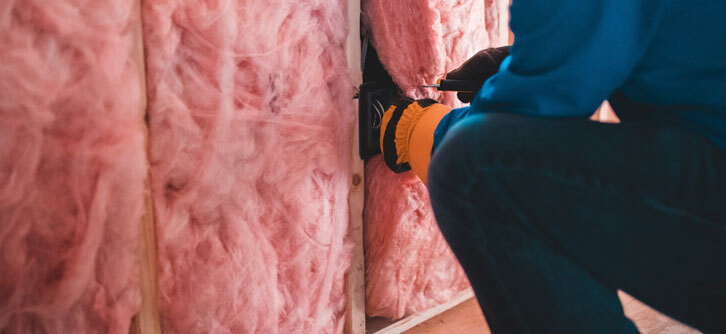Roofing Insulation
Roofing insulation is critical in hotter climates such as Yuma, Arizona. The scorching desert sun can turn a home into an oven, making it unbearable to live in and raising energy bills without proper insulation. The primary function of roofing insulation is to act as a barrier, preventing heat transfer from the outside to the house's interior. The intense heat can infiltrate the home without adequate insulation, leading to uncomfortable living conditions and skyrocketing energy bills as air conditioning systems struggle to maintain a cool temperature. By installing roofing insulation, homeowners in Yuma can effectively reduce heat transfer and create a more comfortable and energy-efficient living environment.

Benefits of Proper Roofing Insulation
One of the critical benefits of roofing insulation in hot climates like Yuma is its ability to minimize heat gain through the roof. As the sun beats down on the roof, it heats the roofing materials, causing the heat to radiate into the home below. Roofing insulation is a protective layer, reducing the heat entering the living space. It forms a thermal barrier that helps to keep the interior cool by reflecting the sun's rays and preventing heat absorption. Proper insulation enhances comfort and lowers energy consumption as the air conditioning system can operate more efficiently, reducing energy costs and a smaller carbon footprint.
Types of Roofing Insulation
Several types of home roofing insulation are available, each with its own characteristics and benefits. Here are some common types:
Fiberglass Insulation
Fiberglass insulation is one of the most widely used types of insulation for roofs. It consists of fine glass fibers blown or placed in batts or rolls. Fiberglass insulation is lightweight, easy to install, and provides excellent thermal resistance. It is also cost-effective and has good fire-resistant properties.
Cellulose Insulation
Cellulose insulation is made from recycled paper and treated with fire-retardant chemicals. It is typically blown or sprayed into the roof cavity. Cellulose insulation has good thermal performance, effectively reducing heat transfer. It is also environmentally friendly and offers some soundproofing qualities. However, it may require professional installation.

Spray Foam Insulation
Spray foam insulation is applied as a liquid and expands to form a foam that fills gaps and voids in the roof structure. It provides an excellent air seal, preventing heat loss and infiltration. Spray foam insulation has a high thermal resistance and can help with moisture control. It also enhances structural strength and acts as a sound barrier. However, professional installation is usually required for spray foam insulation.
Reflective Insulation
Reflective insulation is made of aluminum foil or metallic surfaces that reflect radiant heat away from the roof. It is often installed under the roof or as a reflective coating on existing insulation. Reflective insulation effectively reduces heat gain and works well in hot climates. It is relatively easy to install and does not require professional expertise.
Rigid Foam Insulation
These boards are made from polystyrene or polyurethane, providing high thermal resistance. They are typically installed on the roof's exterior or between roof rafters. Rigid foam insulation offers excellent insulation properties, moisture resistance, and structural support. However, it is more expensive than other insulation types and may require professional installation.
It's essential to consider factors such as the climate, budget, installation requirements, and desired thermal performance when choosing the right type of roofing insulation for your home. Consulting with a professional contractor or insulation specialist can help determine the most suitable option for your needs.
Call for a free insulation quote today. 1 (928) 783-9084